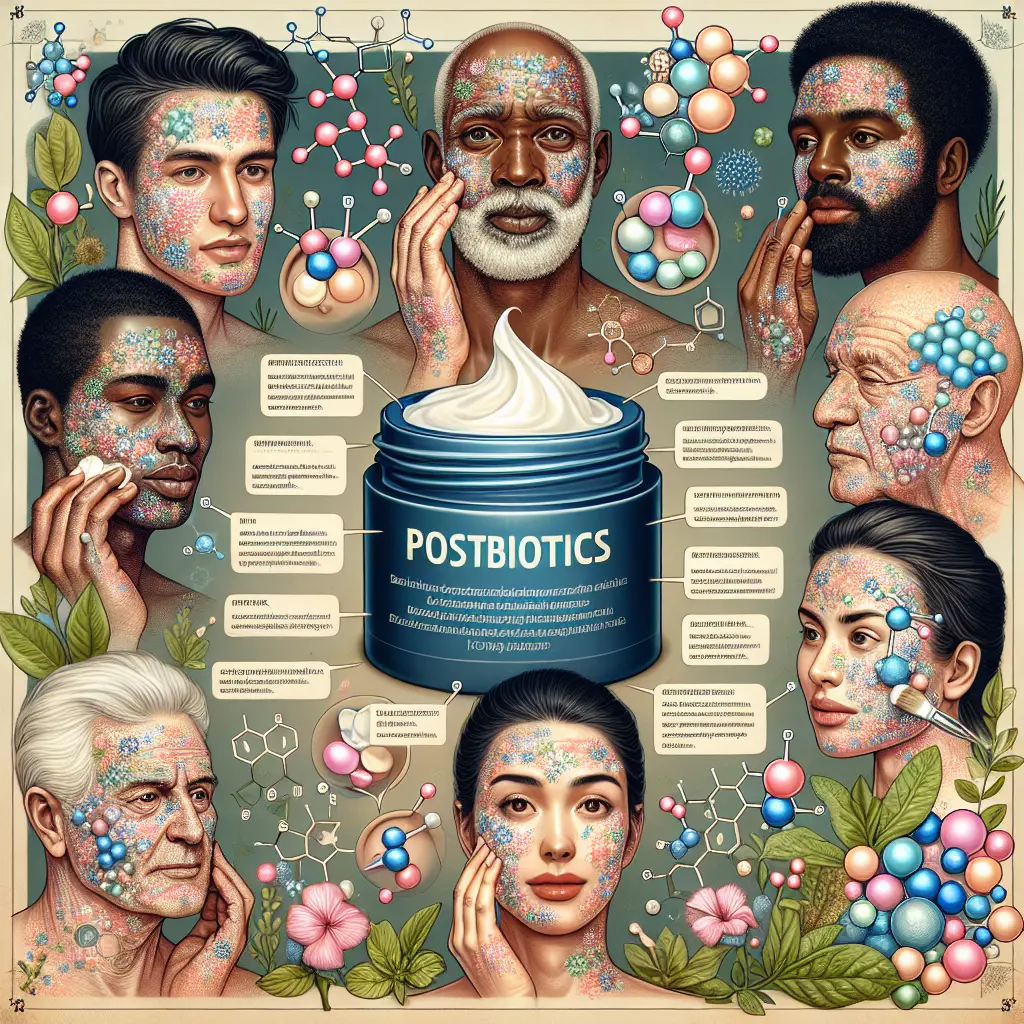
In the ever-evolving world of skincare, the quest for newer, more effective ingredients is perpetual. Among the latest innovations catching the attention of both consumers and dermatologists alike are postbiotics. Unlike probiotics, which are live organisms, postbiotics are non-viable bacterial byproducts or metabolites that offer numerous health benefits, including significant advantages for skin care. Let's delve into the role of postbiotics in skincare and explore how these powerful ingredients are revolutionizing beauty regimes.
What are Postbiotics?
Postbiotics are compounds produced during the fermentation process of probiotics. These include various beneficial substances such as peptides, enzymes, cell wall fragments, and organic acids. In skincare, these components are praised for their ability to support the skin’s natural defenses, moisturize, and improve overall skin health.
Postbiotic Benefits for Skin
The array of benefits postbiotics offer is vast. They are known to enhance the skin barrier, which is crucial for maintaining moisture and protecting against pollutants and allergens (Rutten, S., et al., 2020). Enhanced barrier function is particularly beneficial in treating conditions like eczema and rosacea, making postbiotics an excellent choice for sensitive skin care.
Postbiotics Anti-Aging Effects
One of the most celebrated postbiotic benefits for skin is their anti-aging properties. Postbiotics help to stimulate collagen production, which can reduce the appearance of fine lines and wrinkles. Additionally, these ingredients can improve skin elasticity and firmness, addressing issues like crepey skin and other age-related concerns (Phillips, M., et al., 2019).
Natural Skin Care with Postbiotics
For those leaning towards natural skincare solutions, postbiotics offer a compelling option. They are derived from natural fermentation processes and do not require the manipulation or inclusion of synthetic chemicals. This makes postbiotic creams and serums particularly appealing to eco-conscious consumers.
Postbiotics for Acne Treatment
Acne sufferers can also benefit from postbiotics. The anti-inflammatory properties of postbiotics help soothe skin and reduce acne flare-ups. Moreover, they help balance the skin's pH and combat harmful bacteria, thus preventing future breakouts (Jones, K., et al., 2021).
Enhancing Skin Barrier with Postbiotics
A robust skin barrier is essential for maintaining hydration and protecting against external aggressors. Postbiotics play a critical role in strengthening this barrier by promoting the production of ceramides, fatty acids, and cholesterol—natural components of the skin that prevent moisture loss (Dermatology Times, 2021).
Postbiotics in Dermatology
The application of postbiotics extends beyond over-the-counter cosmetics; they are increasingly used in clinical dermatology. Treatments formulated with postbiotic ingredients are being prescribed for a variety of dermatological conditions, including atopic dermatitis and psoriasis, providing relief and long-term skin health benefits (Clinical Dermatology Reviews, 2020).
Eco-Friendly Skin Care with Postbiotics
The sustainability aspect of postbiotics cannot be overlooked. Since they are byproducts of probiotic bacteria, they utilize existing resources more efficiently and reduce waste, aligning with the principles of eco-friendly skincare.
Postbiotics and Skin Hydration
Hydration is key to maintaining plump, youthful-looking skin. Postbiotics help attract moisture to the skin and lock it in by reinforcing the skin barrier. This not only improves hydration but also gives the skin a radiant and healthy glow (Healthline, 2022).
News and Updates Related to Postbiotics in Skincare
1. Brighter Skin & Fewer Age Spots: Incorporating postbiotic-infused products can lead to brighter skin and fewer age spots. Products like serums enriched with postbiotic complexes offer targeted treatments that promote an even skin tone and reduce hyperpigmentation.
2. Importance of Probiotics: While focusing on postbiotics, it's also beneficial to consider probiotics, especially for certain individuals including those with chronic digestive issues or those taking antibiotics (Mayo Clinic).
3. Gut Health for Athletes: The gut microbiome plays a crucial role in overall health and can significantly impact athletic performance. Research indicates that balancing gut microbiota through the use of probiotics can enhance nutrient absorption and recovery times (Journal of Sport and Health Science).
4. Firming Products: For concerns like crepey skin on the neck, postbiotic firming creams can be particularly effective. These products help to tighten and hydrate the skin, offering visible improvements.
5. Competitive Edge in Sports: Athletes might gain a competitive edge through optimized gut health, potentially enhancing endurance and strength by improving gastrointestinal health which is crucial for peak performance.
6 & 7. Probiotic Sodas: The trend of health-conscious sodas with probiotics highlights consumer interest in integrating beneficial bacteria into everyday life, though it's important to choose products backed by genuine claims.
8. Luxury Beauty Brands: High-end beauty brands often incorporate biotic ingredients to maintain models' skin health during rigorous fashion weeks, showing the universal appeal of biotics in maintaining skin health.
9. Elite Athlete Performance: Advanced research suggests that elite athletes might benefit from tailored probiotic supplements to enhance performance through improved gut health.
In conclusion, the role of postbiotics in skincare represents a blend of ancient fermentation techniques and modern scientific understanding. As we continue to uncover the myriad ways in which these substances benefit our skin, incorporating postbiotic-infused products into our daily routines seems not just wise but essential for anyone looking to enhance their skin health naturally and sustainably.
Stay radiant, Landon Mitchell